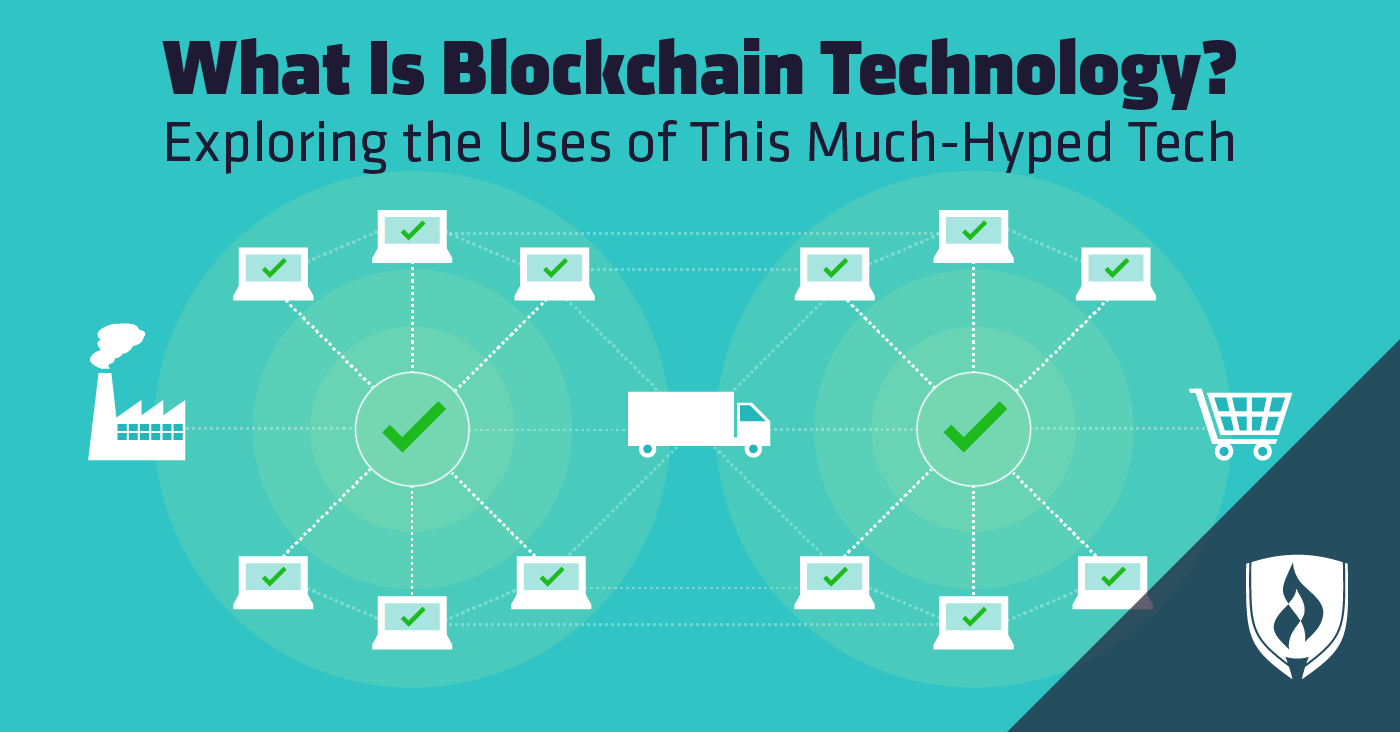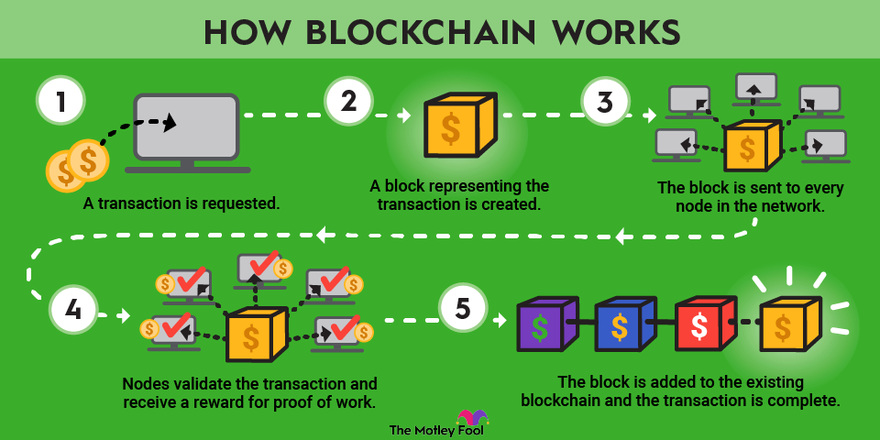What is Blockchain Technology
Blockchain technology is a decentralized, distributed ledger system that stores transactional data across multiple computers. It enables secure and transparent recording of digital transactions and assets.
As businesses and industries increasingly adopt blockchain technology, its impact on various sectors is becoming more apparent. Blockchain technology is revolutionizing the way data is stored and shared across networks.
With its capability to provide secure, transparent, and tamper-proof transactions, blockchain has the potential to transform finance, supply chain management, healthcare, and many other industries.
As the foundation of cryptocurrencies like Bitcoin, blockchain is gaining traction as a reliable and efficient solution for ensuring the integrity and security of data.
Understanding the fundamental principles and applications of blockchain technology is crucial for businesses and individuals to harness its full potential in the digital economy.
Benefits Of Blockchain Technology
Blockchain technology offers secure, transparent, and decentralized transactions across a distributed network. Its benefits include eliminating the need for intermediaries, enhancing security, reducing fraud, and increasing efficiency in various industries.
This revolutionary technology also ensures the immutability of data, fostering trust among users and driving innovation.
Transparency and Immutability Blockchain ensures __transparency and immutability__ of all transactions. Enhanced Security Measures Blockchain provides __enhanced security measures__ through encryption and decentralized storage.
Credit: www.rasmussen.edu
Applications Of Blockchain Technology
Blockchain technology, with its revolutionary concept of decentralization and immutability, has found numerous applications across various industries. Here, we discuss the key applications of blockchain technology.
Cryptocurrencies
Blockchain gained recognition primarily through its application in cryptocurrencies like Bitcoin and Ethereum. These digital currencies leverage blockchain technology to enable secure, transparent, and efficient peer-to-peer transactions. Unlike traditional currencies, cryptocurrencies operate on a decentralized network, eliminating the need for intermediaries like banks.
The blockchain serves as a digital ledger that records all transactions, ensuring accuracy and preventing fraud. Its decentralized nature provides a higher level of security and resistance to hacking or manipulation. With the growing popularity of cryptocurrencies, blockchain technology is transforming the financial industry.
Smart Contracts
Smart contracts are self-executing agreements that are built on blockchain technology. These contracts automatically execute and enforce predefined conditions without the need for intermediary parties. Using computer code and blockchain's decentralized infrastructure, smart contracts ensure trust and eliminate the potential for fraud.
The decentralized nature ensures that these contracts are tamper-proof and transparent. Smart contracts find applications in areas such as supply chain management, real estate transactions, insurance claims processing, and legal agreements. They streamline processes, reduce costs, and enhance the efficiency of contractual relationships.
Challenges In Blockchain Technology Implementation
Implementing blockchain technology comes with its own set of challenges, from scalability issues to regulatory concerns. The adoption of blockchain requires addressing these obstacles to ensure its widespread use and effectiveness in various industries.
Scalability Issues
The scalability of blockchain technology refers to its ability to handle a growing number of transactions without compromising performance. Scalability challenges arise due to the distributed nature of the technology, requiring consensus among multiple nodes. This often leads to slower transaction processing and higher costs as the network grows.
Regulatory Concerns
Regulatory concerns around blockchain technology center on issues such as data privacy, security, and legal compliance. As blockchain facilitates peer-to-peer transactions, regulators seek to establish frameworks that ensure transparency, protection of consumer rights, and prevention of illicit activities such as money laundering.
The absence of consistent regulations across different jurisdictions poses a significant challenge for the widespread adoption of blockchain technology.

Credit: www.fool.com
The Evolution Of Blockchain Technology
Blockchain technology has come a long way since its inception. The evolution of blockchain technology has seen it transcend beyond its initial application in cryptocurrencies, such as Bitcoin, towards enterprise solutions and integration with the Internet of Things (IoT).
From Bitcoin To Enterprise Solutions
Blockchain technology gained popularity with the emergence of Bitcoin, serving as the underlying technology for the now-famous cryptocurrency. However, its potential goes far beyond digital currencies.
Enterprises have recognized the advantages of blockchain, leading to the development of solutions tailored for various industries, including finance, supply chain, healthcare, and more.
Integration With the Internet Of Things (IoT)
The integration of blockchain with the Internet of Things (IoT) has opened up new possibilities for secure and decentralized data management. This integration ensures the seamless exchange of information between connected devices while maintaining the integrity and security of the data.
Through blockchain, IoT ecosystems can operate, leveraging the benefits of immutable ledgers and smart contracts to automate processes and enhance interoperability.
Blockchain Technology Across Industries
Blockchain technology has emerged as a game-changer across various industries, revolutionizing the way businesses operate. Its decentralized and transparent nature offers numerous benefits, such as increased security, efficiency, and cost-effectiveness. Let's explore how this innovative technology is being utilized in the finance sector and supply chain management.
Finance Sector
The finance sector has experienced a significant transformation with the integration of blockchain technology. With traditional systems susceptible to fraud and human errors, blockchain provides a robust solution by creating a tamper-proof ledger of all financial transactions. This technology allows for secure and transparent peer-to-peer transactions without the need for intermediaries.
In addition, blockchain enables faster cross-border payments, eliminating the involvement of third-party mediators. Smart contracts, another feature of blockchain, automate and enforce contractual agreements, reducing the need for manual verification and streamlining processes.
Financial institutions have also been exploring the use of blockchain for KYC (Know Your Customer) processes, ensuring compliance while enhancing customer experience.
Supply Chain Management
Efficient supply chain management is vital for businesses to stay competitive in today's global market. Blockchain technology offers unprecedented transparency and traceability throughout the supply chain, addressing issues of counterfeiting, theft, and fraud.
Companies can track the movement of goods from the point of origin to the end consumer, ensuring authenticity and quality at every step. By storing product information on the blockchain, businesses can verify the provenance of goods, monitor inventory levels, and enhance supply chain visibility.
This enables streamlined logistics, reduces paperwork, and enhances trust among supply chain partners. Moreover, smart contracts on the blockchain automate processes such as procurement, payment settlements, and dispute resolution, eliminating delays and disputes.
:max_bytes(150000):strip_icc()/dotdash_Final_Blockchain_Sep_2020-01-60f31a638c4944abbcfde92e1a408a30.jpg)
Credit: www.investopedia.com
Future Trends In Blockchain Technology
Blockchain technology is constantly evolving, paving the way for future trends that will shape various industries.
Increased Interoperability
Enhancing compatibility between different blockchain networks to streamline processes and improve overall efficiency.
Focus On Sustainability
Developing eco-friendly blockchain solutions to reduce energy consumption and minimize environmental impact.
Blockchain Technology And Digital Transformation
Blockchain technology introduces a decentralized approach to transactions, cutting out intermediaries for greater efficiency.
This innovation promotes transparency and enhances security in data exchanges.
Traditional systems are being overhauled as blockchain technology revolutionizes how data is stored and shared.
Decentralization challenges the conventional centralized models and provides for more trustless interactions.
Frequently Asked Questions On What Is Blockchain Technology
What Is Blockchain Technology?
Blockchain technology is a decentralized system of recording and verifying transactions across a network of computers.
How Does Blockchain Work?
Blockchain uses a distributed ledger to record and validate transactions, utilizing cryptographic techniques for security and transparency.
What Are The Benefits Of Blockchain?
Blockchain offers increased security, transparency, and efficiency, reducing the need for intermediaries in various transactions.
Can Blockchain Be Hacked?
Blockchain's decentralized and encrypted nature makes it extremely secure and difficult to hack, providing a high level of security.
What Are The Applications Of Blockchain?
Blockchain technology can be applied in various industries, such as finance, healthcare, supply chain management, and more, to streamline processes and enhance security.
Conclusion
To sum up, blockchain technology stands as a revolutionary force across various industries, offering secure and transparent solutions. Its decentralized nature and immutability ensure that transactions are tamper-proof, fostering trust and eliminating the need for intermediaries.
With its potential to redefine business processes and enhance security, blockchain is poised to shape the future of numerous sectors, from finance to healthcare.
Embracing this transformative technology can open up endless possibilities for businesses to streamline operations and create more efficient, trustworthy systems.






